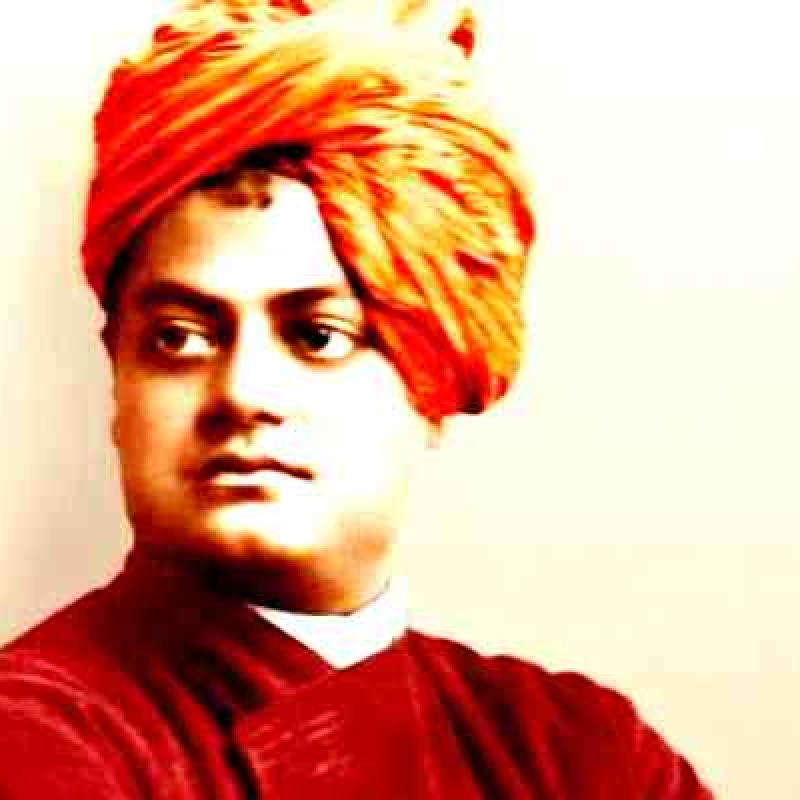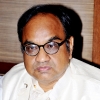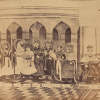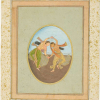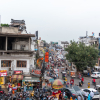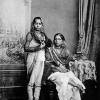While Swami Vivekananda’s introductory speech at the World Parliament of Religions on September 11, 1893 is widely regarded as iconic, we note that, contrary to popular opinion, he did not advocate the idea of a ‘universal religion’, but championed the concept of a common goal or destiny (i.e., human salvation) for every religious community. (Photo courtesy: Manjappabg/Wikimedia Commons)
The idea of convening a global religious assembly was suggested by a Chicago lawyer, Charles Carroll Bonney, as early as 1889 as a part of the forthcoming World’s Columbian Exposition in 1893 to celebrate the 400th anniversary of Columbus’ discovery of America. At the parliament itself, John Henry Barrows, the president of the organising committee, boasted that only an affluent Christian nation such as America could have hosted an event of this magnitude. Ironically, this sentiment was to be echoed by Swami Vivekananda himself in two successive speeches at the parliament (September 15 and 19, 1893). Emperor Ashoka’s councils, the swami observed, were narrowly Buddhist, and those summoned by Akbar, only ‘parlour meetings’.[1]
It is believed that one of the dominant influences behind the Parliament of Religions was the presence of American Unitarians and ‘liberal’ Christians who were willing to accommodate non-Christian religions. It is fairly well established that these groups had supported successive visits by three prominent Indians to England and the USA even before 1893: Rammohun Roy (1830), Keshub Chunder Sen (1870) and Protap Chunder Mozoomdar (1883).
The Indian presence at Chicago was impressive. There were no less than a dozen delegates invited, though not all spoke at the parliament. There were delegates representing Indian Buddhism, Jainism, Theosophy, the Brahmo Samaj, Indian Islam and Christianity. The organising committee even invited the Kartabhaja[2] leader Dulalchandra Pal, but only some 60 years after he had passed away. Sadly, both public perception and scholarly inputs tend to neglect the presence and contributions of Indian speakers other than Vivekananda.
Also read | Perspectives on Caste: The Nineteenth-Century Bengali Literati
Between September 11 and 27, Swami Vivekananda delivered six speeches in Chicago. Of these, the opening address is the best known, if only for the novel and the somewhat dramatic way it began—addressing the audience as ‘Sisters and Brothers of America’. Interestingly, this is contested. While the official history of the parliament notes how ‘a peal of applause that lasted for several minutes’ followed the swami’s opening words, a contemporary publication titled A Chorus of Faith as Heard in the Parliament of Religions altogether omits such a reference.
In summary, the following features stand out in his Chicago speeches:
- An argument in favour of religious tolerance and accommodation as opposed to self-righteousness and bigotry, aptly illustrated by the ‘frog in the well’ (kupamanduka) story. In substance, Vivekananda emphasised the religious pluralism embedded in Hinduism. Contrary to widespread perceptions, the swami did not advocate the idea of a universal religion—not even of the unity of religious thought or practice—but championed the concept of a common goal or destiny (i.e., human salvation) for every religious community.[3]
- The questioning of religious conversion itself, arguing that holiness, purity and charity were not the exclusive domains of any one sect or church.
Vivekananda’s pluralism was somewhat marred by his denial of autonomy to Buddhism in relation to Hinduism. Further, his attempts to project Hinduism as a universalistic religion forced him to speak within a hierarchic framework of argument that had Hinduism, or at least his projection of it, at the top. He did not adequately address the question of whether an agreement between various religious traditions was a precondition for religious harmony. What Vivekananda also did not openly acknowledge was that even a dialogic openness between religions or admitting that they all pointed to the same God did not necessarily mean that all religions were, in essence, the same.
Also read | Perspectives on Caste: The Nineteenth-Century Bengali Literati
In substance, his addresses at the parliament were more enthused by a buoyant patriotism than a religious re-statement. This was true of most delegates from colonised Asia. Even on his first visit to the USA in 1883, Protap Chunder Mozoomdar (a leader of the Hindu reform movement) accused the West of misjudging India and Indians: ‘[W] hat the Occidental mind does not understand, it sets down to mysticism…you have no experience to give us but plenty of theories and criticisms’. In 1893 itself, a paper by author and social reformer Manilal Nanubhai Dwivedi countered presumptions in Western Christianity by suggesting that Biblical chronology itself was untenable in the light of science.
On occasion, Vivekananda’s patriotism got the better of his sense of historical objectivity. Two such instances are found in his opening address itself: when he identifies Hinduism as the ‘mother of all religions’, and when he wrongly claims that the Hindus produced the earliest order of monastics, which is more correctly associated with Buddhism.
In hindsight, Vivekananda’s popularity at Chicago may be attributed to several factors. First, there was undoubtedly the charisma of the man himself. Second, some of his statements fed into the contemporary American psyche. His point about the perfectibility of man proved attractive to a young nation that was greatly attuned to notions of success and power. Similarly, his critique of doctrinal Christianity came at a time when the American mind was growing disenchanted with such ideas.
While there was much patriotic jubilation in India following Vivekananda’s success in America, it is often overlooked that on his return to India, the much-acclaimed swami was denied access to the Dakshineswar Temple complex, where he often visited his guru, Sri Ramakrishna Paramahamsa. Reportedly, this was done on the grounds that he had suffered a fall from ritual purity when he crossed the sea. Others contested the idea of a Kayastha representing ‘high Hinduism’, a right reserved only for Brahmins. Such conflicting perceptions remain an unsavoury aspect of the events of 1893. It would appear as though an otherwise proud and grateful nation also revealed moments of cultural amnesia and ingratitude.
This article was also published on Scroll.in
Notes
[1] I make it a point to mention this here since the intention and substance of Vivekananda’s speeches at Chicago were otherwise quite patriotic.
[2] A popular, non-sectarian cult that took birth in eighteenth-century Bengal, known for its rebuttal of high Hinduism and free gender mixing among members.
[3] This is made clear in the very first speech on September 11 when he said, ‘We believe not only in universal toleration but we accept all religions as true’. ‘Swami Vivekananda’s Speeches at the Parliament of Religions, Chicago, 1893,’ belurmath.org, n.d., accessed on September 9, 2019, https://belurmath.org/swami-vivekananda-speeches-at-the-parliament-of-r….
